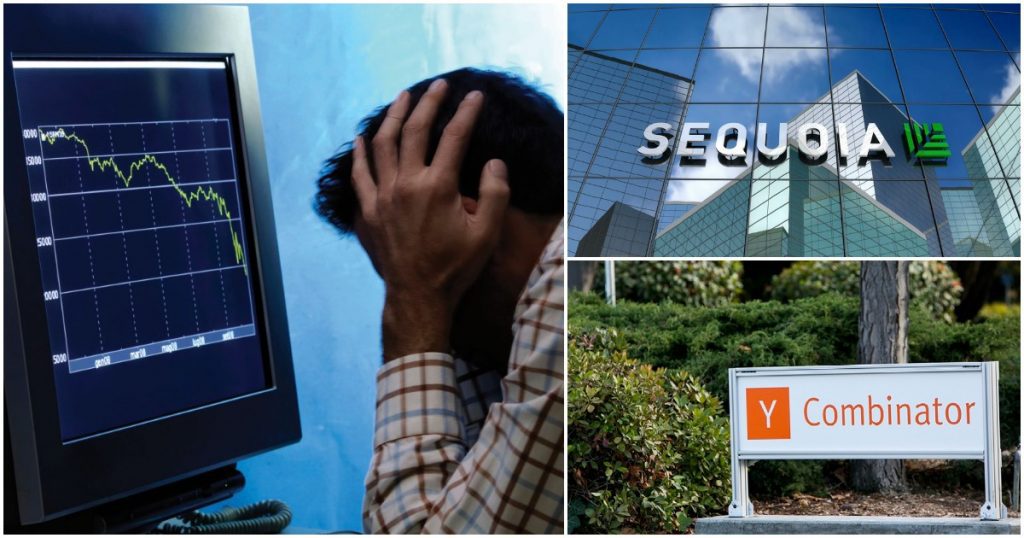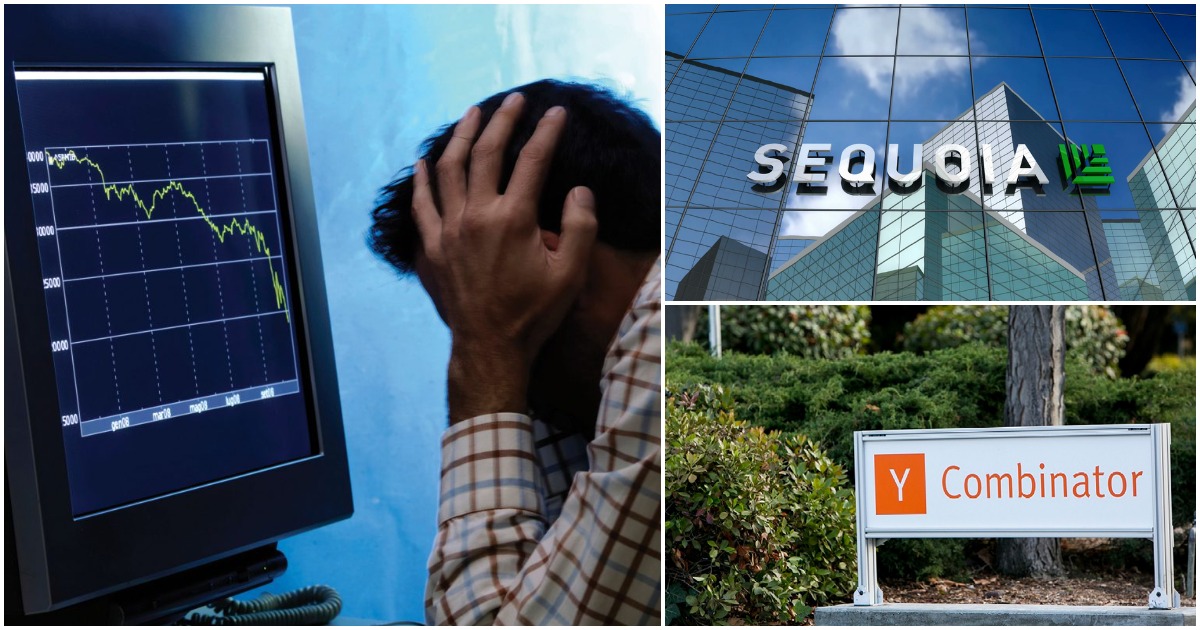Startup investors make most of their money from being able to spot trends early, and they now seem to be in unison about how the startup market is going to shape up in the coming months.
The world’s foremost startup investors, Y Combinator and Sequoia Capital, have warned their portfolio companies of the slowdown that’s about to hit the startup industry. Sequoia Capital has sent a 51-page note to its portfolio companies in which it discusses the factors responsible for the downturn, and gives suggestions on what startups can do to cope. Y-Combinator, which runs one of the best-known startup accelerators in the world, has also sent a similar note to its portfolio companies. Tech stocks across the world have gotten a hammering in recent months, with some major names losing as much as half their value.

“Greetings YC founders,” Y Combinator’s note to its companies began. “During this week we’ve done office hours with a large number of YC companies. They reached out to ask whether they should change their plans around spending, runway, hiring, and funding rounds based on the current state of public markets. What we’ve told them is that economic downturns often become huge opportunities for the founders who quickly change their mindset, plan ahead, and make sure their company survives,” it added.
The note then listed out the following points for startups to take note.
- No one cannot predict how bad the economy will get, but things don’t look good.
- The safe move is to plan for the worst. If the current situation is as bad as the last two economic downturns, the best way to prepare is to cut costs and extend your runway within the next 30 days. Your goal should be to get to Default Alive.
- If you don’t have the runway to reach default alive and your existing investors or new investors are willing to give you more money right now (even on the same terms as your last round) you should strongly consider taking it.
- Regardless of your ability to fundraise, it’s your responsibility to ensure your company will survive if you cannot raise money for the next 24 months.
- Understand that the poor public market performance of tech companies significantly impacts VC investing. VCs will have a much harder time raising money and their LPs will expect more investment discipline.
As a result, during economic downturns even the top tier VC funds with a lot of money slow down their deployment of capital (lesser funds often stop investing or die). This causes less competition between funds for deals which results in lower valuations, lower round sizes, and many fewer deals completed. In these situations, investors also reserve more capital to backstop their best performing companies, which further reduces the number of new financings. This slow down will have a disproportionate impact on international companies, asset heavy companies, low margin companies, hardtech, and other companies with high burn long time to revenue.
Note that the numbers of meetings investors take don’t decrease in proportion to the reduction in total investment. It’s easy to be fooled into thinking a fund is actively investing when it is not. - For those of you who have started your company within the last 5 years, question what you believe to be the normal fundraising environment. Your fundraising experience was most likely not normal and future fundraises will be much more difficult.
- If you are post Series A and pre-product market fit, don’t expect another round to happen at all until you have obviously hit product market fit. The Series A Milestones we publish here might even turn out to be a bit too low.
- If your plan is to raise money in the next 6-12 months, you might be raising at the peak of the downturn. Remember that your chances of success are extremely low even if your company is doing well. We recommend you change your plan.
- Remember, that many of your competitors will not plan well, maintain high burn, and only figure out they are screwed when they try to raise their next round. You can often pick up significant market share in an economic downturn by just staying alive.
Sequoia Capital sent out a similar note, warning the founders of its portfolio companies that they should not expect a quick recovery from the current market conditions. In the 51-page note, Sequoia said loose monetary policies globally in the past two years had led to negative interest rates, making fundraising effortless for growth companies and driving up valuations. Now, with interest rates rising, “money is no longer free”, which can have massive implications for valuations and fundraising.
The fund called the downturn a “crucible moment”, one that would present “challenges and opportunities” for many of its portfolio founders. “We foresaw some of this when we first published our Black Swan memo at the start of the Covid in early 2020. What we got wrong was the monetary and fiscal policy response that followed and the distortion field that created,” Sequoia wrote. “Sustained inflation, and geopolitical conflicts further limit the ability for a quick-fix policy solution. As such, we do not believe that this is going to be another steep correction followed by an equally swift V-shaped recovery, like we saw at the outset of the pandemic,” it added.
“We expect the market downturn to impact consumer behaviour, labour markets, supply chains and more. It will be a longer recovery and while we can’t predict how long, we can advise you on ways to prepare and get through to the other side,” Sequoia added.
“When capital was free, the best performing companies were capital consumptive. As capital has gotten expensive, these have become the worst performing companies,” Sequoia said. “The era of being rewarded for hypergrowth at any costs is quickly coming to an end,” the venture firm added.
This isn’t the first time investment firms have sent out alarmist notes to their portfolio companies — Sequoia had famously sent a note titled “RIP Good Times” during the 2008 economic recession, and that had turned out to be one of the most severe downturns in modern history. It remains to be seen how severe the current downturn will end up being, but with the biggest names in startup investing ringing alarm bells, startups would do well to listen.
